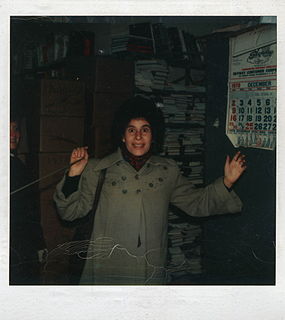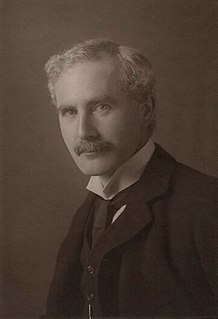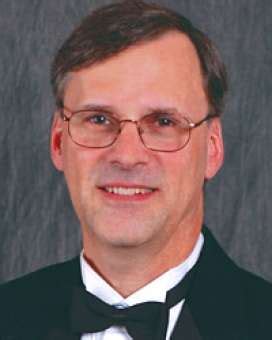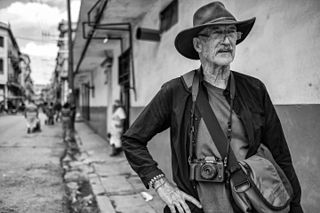A Quote by Ingrid Bengis
The real questions refuse to be placated. They are the questions asked most frequently and answered most inadequately, the ones that reveal their true natures slowly, reluctantly, most often against your will.
Related Quotes
The real questions are the ones that obtrude upon your consciousness whether you like it or not, the ones that make your mind start vibrating like a jackhammer, the ones that you "come to terms with" only to discover that they are still there. The real questions refuse to be placated. They barge into your life at the times when it seems most important for them to stay away. They are the questions asked most frequently and answered most inadequately, the ones that reveal their true natures slowly, reluctantly, most often against your will.
In this box are all the words I know… Most of them you will never need, some you will use constantly, but with them you may ask all the questions which have never been answered and answer all the questions which have never been asked. All the great books of the past and all the ones yet to come are made with these words. With them there is no obstacle you cannot overcome. All you must learn to do is use them well and in the right places.
All I did was collect a few of the questions I've been asked through the years, write up a brief response and put them in this publication. As a pastor, you get asked questions and receive emails. Many of them I had answered, but just in conversation. So we kind of re-crafted the question and answered it. It turned out to be an interesting exercise. I hope it's encouraging for people.
The examen is a form of personal inventory. At day’s end, spend time in prayerful reflection on your day: your comings and goings, routines and disruptions, work and play, discoveries and disappointments. Think about who you met, or missed. Think about your moments of aloneness. In all, ask two questions: when was I most alive, most present, most filled and fulfilled today? And when was I most taxed, stressed, distracted, depleted today? A simpler, and more spiritually focused, version of those questions: when did I feel closest to God, and when farthest?
Before you give advice, that is to say advice which you have not been asked to give, it is well to put to yourself two questions - namely, what is your motive for giving it, and what is it likely to be worth? If these questions were always asked, and honestly answered, there would be less advice given.
Whenever I'm giving talks, I always ask people to think of the most obscure questions because I enjoy those the most. I always get the same questions: Why does Pickwick say "plock" and will there be a movie? I like the really obscure questions because there's so much in the books. There are tons and tons of references and I like when people get the little ones and ask me about them. It's good for the audience [and also] they realize there's more there.





































